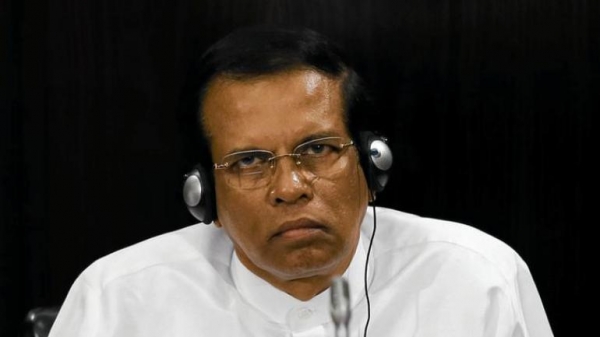Issuing a statement earlier today, 900 Sri Lankan students demanded President Maithripala Sirisena to rescind his "unconstitutional gazette" allowing Speaker Karu Jayasuriya to convene Parliament immediately and hold a vote of confidence.
The statement also urged the members of the Elections Commission to act in accordance with the constitution and uphold the law.
The full statement issued by the students is as follows,
"The first unconstitutional transfer of power in Sri Lanka’s post-independence history occurred two weeks ago. On the 9th of November, the constitution was breached yet again in an attempt to consolidate that coup. President Sirisena signed an illegal proclamation to dissolve Parliament. In response, today, we sign this statement knowing that it is our actions, and those of our fellow citizens, that will determine Sri Lanka’s fate and our future at this fateful moment in history.
Mr. Sirisena’s proclamation is the latest in a series of unconstitutional acts. A President can only dissolve Parliament if one of two conditions are satisfied: either four and a half years must pass since the last election or 2/3rds of the Members of Parliament (MPs) must agree to dissolve Parliament. Neither condition was met: Mr. Sirisena and Mr. Rajapaksa are now acting in complete disregard of the supreme law of the land.
Yet our Constitution is not merely ink on paper. It decides how we delegate our power to our representatives. It defines the powers of the executive, the legislature and the judiciary and places checks on those powers. It fixes the rules that keep elections free and fair. In short, our Constitution is what makes democracy possible.
Claiming that a dissolution will protect democracy because it “allows the people to decide”, is a lie. Mr. Sirisena and Mr. Rajapaksa do not care for democracy. The foundation of our democracy, the Constitution, provides that only an MP who commands the confidence of a majority in Parliament can be Prime Minister. Yet, lacking a majority, Mr. Sirisena attempted to appoint Mr. Rajapaksa as Prime Minister. A democratic vote in Parliament could have demonstrated this – but Mr. Sirisena prorogued the people’s assembly to prevent one. Democracy requires MPs to represent the interests of those who elected them – yet Mr. Sirisena and Mr. Rajapaksa’s supporters used money and offers of ministries to bribe MPs into changing sides.
In two weeks, Mr. Sirisena and Mr. Rajapaksa have acted solely to consolidate their power, not to serve the People. Any election will be run on the same principle: state resources, under illegal ministers, will be used to support their campaign; state officers will be used to obstruct and weaken opposition parties; the Elections Commission will face pressure to follow orders. The media is already being muzzled. Indeed, given their complete disregard of the Constitution and democratic norms, there is no guarantee that they will accept defeat even if they lose an election. Our opposition, however, is not to elections. It is to an unconstitutional election held in a climate where the set of rules that make elections free and fair, that is the Constitution, is violated and ignored.
Therefore, we call upon:
1. President Sirisena to rescind his unconstitutional gazette.
2. The Speaker to convene Parliament immediately and hold a vote of confidence.
3. Members of the Election Commission – Mahinda Deshapriya, N. J. Abeysekera PC and Prof. Ratnajeevan Hoole - to act in accordance with the Constitution.
4. The Supreme Court and other courts to uphold the Constitution with impartiality and courage.
5. All public servants, including the armed forces and police, to only follow constitutional and lawful instructions issued in writing.
As over 900 young Sri Lankans we will have to live with the consequence of this crisis long after Mr. Sirisena and Mr. Rajapaksa are gone. Without government by law, there is no hope of stopping corruption, nepotism and blatant violations of human rights. Without government by law, there is no chance of justice and reconciliation. Without government by law, there can be no development and prosperity for all.
Yet there is hope. Vigorous democratic resistance to the October 26th coup prevented a complete take-over. Our voices of dissent, our presence at protests, our acts of resistance – small and insignificant though they may seem – do make a difference. In this crisis we urge all Sri Lankans to join us, to take responsibility for our flawed democracy, to speak out, protest and resist, and to stand up against this grave threat to our future."










